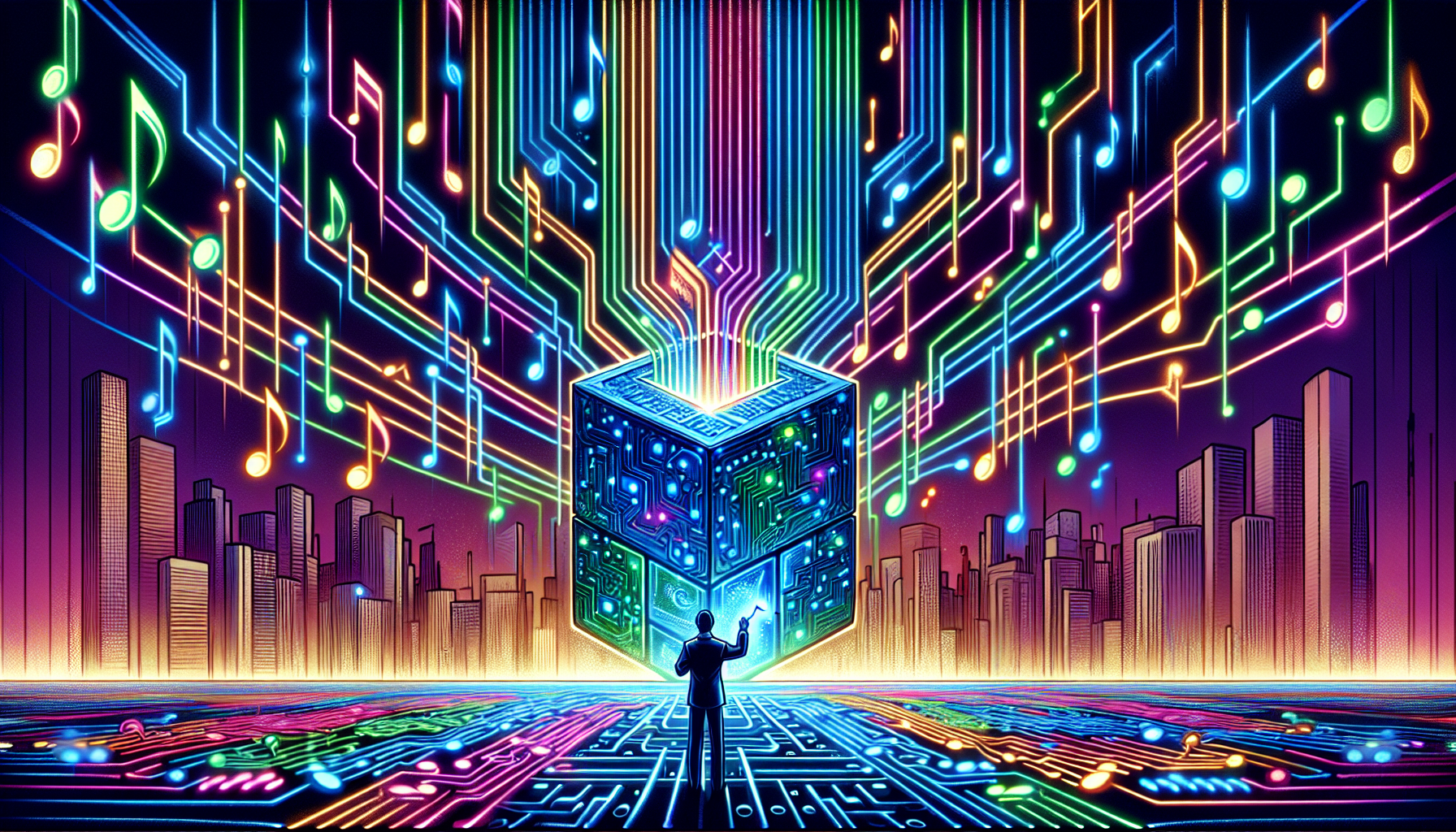
The Great Legal Opera
In a world where artificial intelligence is now composing sonnets with the flair of a 16th-century bard, major record labels have raised their pitch… legally. Companies like Suno and Udio have found themselves in a whirlwind of copyright infringement lawsuits. It’s like the music industry’s version of a legal opera, with Sony, Universal, and Warner Records as the orchestra, playing the loudest notes of Cease and Desist. The Recording Industry Association of America (RIAA) is the conductor, orchestrating a lawsuit symphony, all in the name of artists’ rights. Who knew the courtroom could be so melodious?
The intriguing spectacle of this courtroom drama is matched only by the introduction of the Generative AI Copyright Disclosure Act, designed to add some transparency to the mysterious process of AI music creation. At the helm of this legislative bandwagon is Representative Adam Schiff, who proposes the creation of a public database to make sure every used musical note is accounted for. It’s as if the government suddenly decided that Beethoven needs a co-writer credit for AI-generated harmonics.
Fair Use: The Genre-Bending Mix Tape
Now, before you grab your metaphorical popcorn to watch AI’s legal battle crescendo to a dramatic finish, there’s the interlude of the Fair Use Doctrine. AI companies frequently drop this remix defense, claiming their inspirations lie in their ability to sample without the need for copyrights. Yet artists and rights holders clutch their copyrights tightly, fending off commercial exploitation fears like Shakespeare fending off bad sonnets. It’s a mix of legal karaoke that begs the question: When is a cover song just a cover-up?
Amidst this cacophony, we waltz into the uncharted ballroom of Lack of Clear Copyright Framework for AI-Generated Music. Suppose Bach found himself without a copyright for a Brandenburg Concerto. Similarly, AI creations stand in a nebulous aural territory, given that the U.S. pantheon of copyright law barely acknowledges creations made without a single nod from a human head.
Meanwhile, the ghost of Prince is eyeing Potential Infringement of Personality Rights with a wary side-glance. AI-generated melodies that masquerade in the signature style or voice of a living or past artist tread on the delicate toes of personality rights. This is enough to make even a digital remix blush!
And what’s an opera without a bit of drama about royalties and monetary cheese? Securing legitimate licenses for source material is as crucial as finding the right key for a song. The music industry is abuzz with the need to share this newly baked pie between the AI baker and the human chef. It’s a new composition altogether, with distinct notes of fair compensation and recognition.
As we dance into this brave new world of AI in music, it becomes apparent that a collaboration between artists, AI developers, and legal virtuosos is essential. They must choreograph a legal ballet that embraces innovation while safeguarding those oldies but goodies, the creator’s rights. Surely, with initiatives like the EU Artificial Intelligence Act, no harmony will be left out of this ever-changing playlist.






